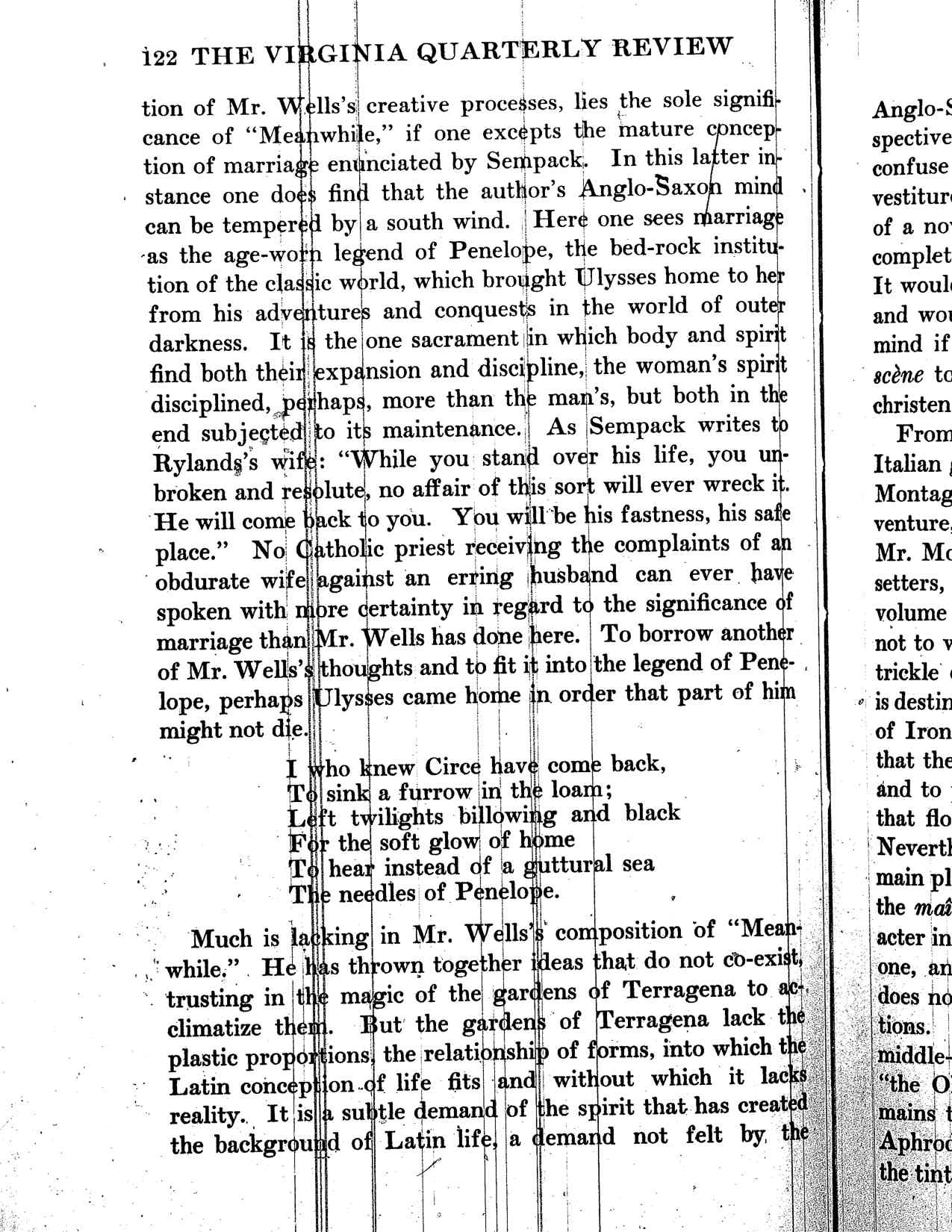
[new page]
of Mr. Wells’s creative processes, lies the sole significance
of “Meanwhile,” if one excepts the mature conception
of marriage enunciated by Sempack. In this latter instance
one does find that the author’s Anglo-Saxon mind
can be tempered by a south wind. Here one sees marriage
as the age-worn legend of Penelope, the bed-rock institution
of the classic world, which brought Ulysses home to her
from his adventures and conquests in the world of outer
darkness. It is the one sacrament in which body and spirit
find both their expansion and discipline, the woman’s spirit
disciplined, perhaps, more than the man’s, but both in the
end subjected to its maintenance. As Sempack writes to
Rylands’s wife: “While you stand over his life, you unbroken
and resolute, no affair of this sort will ever wreck it.
He will come back to you. You will be his fastness, his safe
place.” No Catholic priest receiving the complaints of an
obdurate wife against an erring husband can ever have
spoken with more certainty in regard to the significance of
marriage than Mr. Wells has done here. To borrow another
of Mr. Wells’s thoughts and to fit it into the legend of Penelope,
perhaps Ulysses came home in order that part of him
might not die.
I who knew Circe have come back,
To sink a furrow in the loam;
Left twilights billowing and black
For the soft glow of home
To hear instead of a guttural sea
The needles of Penelope.
Much is lacking in Mr. Wells’s composition of “Meanwhile.”
He has thrown together ideas that do not co-exist,
trusting in the magic of the gardens of Terragena to acclimatize
them. But the gardens of Terragena lack the
plastic proportions, the relationship of forms, into which the
Latin conception of life fits and without which it lacks
reality. It is a subtle demand of the spirit that has created
the background of Latin life, a demand not felt by the






